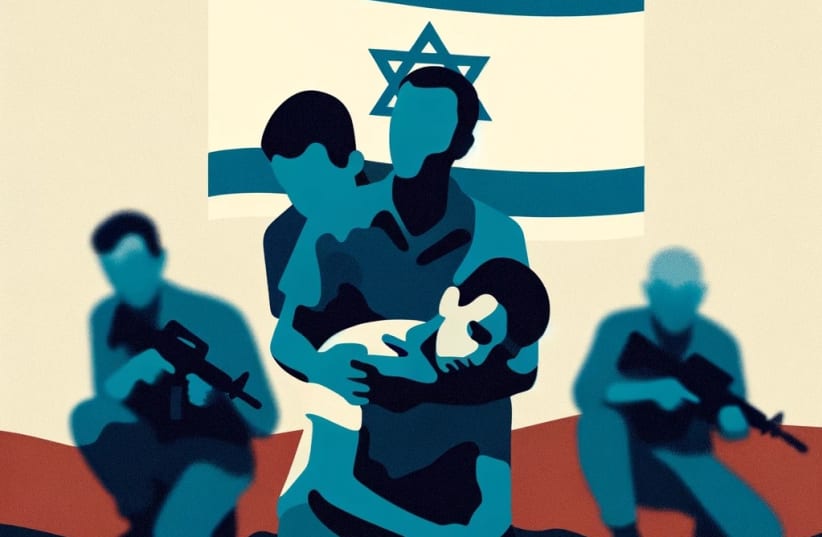Since October 7, ERAN (the voluntary organization Emotional First AID received a total of 172,000 calls and online requests for help, about 33,000 per month about their anxiety, stress, and psychological trauma.
About 44,000 were received by phone and via the Internet only in the first month after the vicious incursion by Hamas terrorists and the war that Israel launched against them.
On October 7 alone, it received over 3,500 calls with a very high level of distress compared to about 500 calls per day on average on normal days. The daily average of inquiries since the outbreak of the war was 920 inquiries per day.
As the war progressed, there was an increase in distress calls from male soldiers and female soldiers in regular service and in the reserves; most calls (41%) were received in the age range of 18 to 35 – which coincides with the age of most who are serving in the military.
There was a 125% increase in the number of distress calls among teenagers and young people under the age of 17 in the first weeks of the war.
Increase of 950% in inquiries regarding mental health
ERAN reported a sharp increase of 950% in inquiries about anxiety, trauma, and loss compared to the previous half year. As the war progressed, there was an increase in calls involving with depression and acute mental distress and loneliness.
During the six months, over 38,000 (22%) distress calls were received from children and young people up to the age of 24. Of these, 60% were girls and 40% were boys. The main reasons for calling were anxiety and trauma.
Out of the total number of referrals received by ERAN since October 7, there has been a 10% increase among men compared to previous years.
ERAN director-general David Koren said that his organization is on the “front line” of the psychological aid in the country. It has marked an imaginary red line between the period before the war and the period after it.
The mental health crisis that we observed at the beginning of the events is here – and it is hitting hard. This is a crisis that requires systemic, national, budgetary, and long-term professional treatment.
We call on all decisionmakers and stakeholders in the field of mental health to mobilize together with us and help all Israeli citizens in the battle for the mind.”
Dr. Shiri Daniels, ERAN’s the national professional director, added that “in Israel, life is conducted under constant stress, and the exposure to traumatic events occurs in waves and sharp transitions between routine and emergency and back again.
Our unique service is adapted to the needs of the Israeli public and enables quick transitions between routine response to routine emergencies and short-term or long-term emergency situations, while adjusting the scope of the service and its availability to a growing number of applicants.
It is important to remember that those who turn to the ARAN have shown strength and resilience in their appeal for assistance in times of distress. Not everyone in Israeli society will necessarily need psychological treatment, but each of us needs support.”
When there are constant terrorist incidents, military operations, security crises, and in periods of escalation, the organization switches to conducting itself in an emergency format while increasing the number of volunteers on day and night shifts in accordance with the increasing distress requests.
Appeals for aid were unusual by any measure compared to normal times and previous emergencies and included calls for help from Israeli families living close to Gaza and the south.
There thousands of calls from citizens from all over the country who are staying in shelters and shelters under the threat of missiles and the fear of infiltration, and from parents and friends who are worried about the safety of their loved ones who lost contact with them or were called up into the reserves.
During the first months of the war, alongside the existing 1,750 trained volunteers who enlisted in the national mission, about 150 “reserve” volunteers were recruited who returned to the association’s ranks due to the state of emergency. Seven new volunteer training courses were opened in the process.

